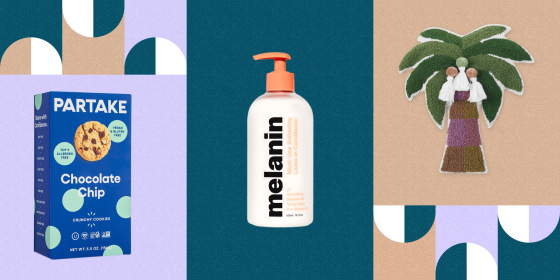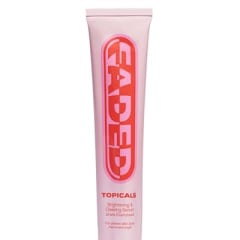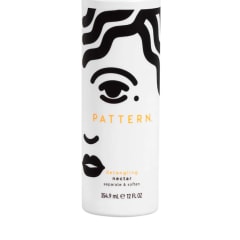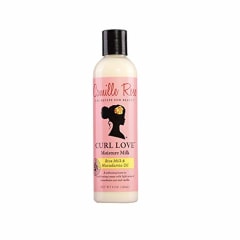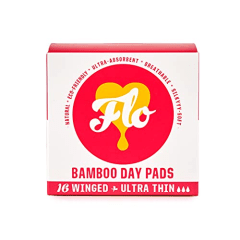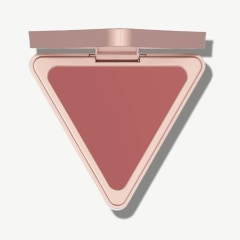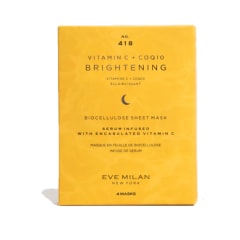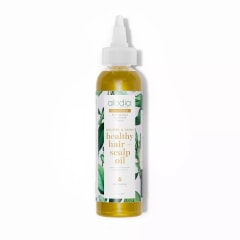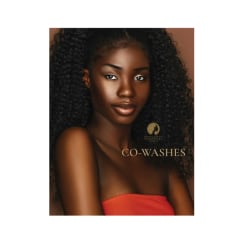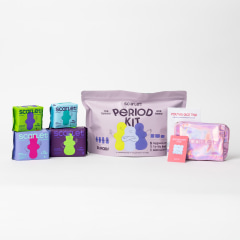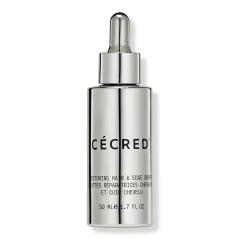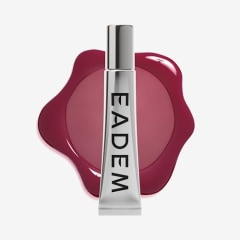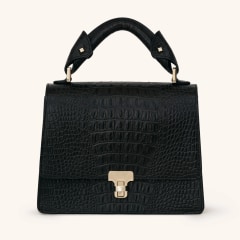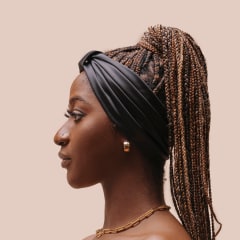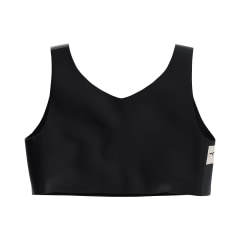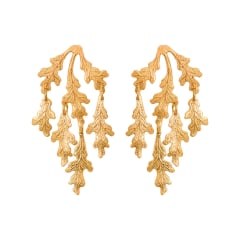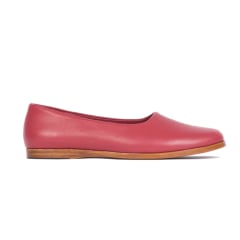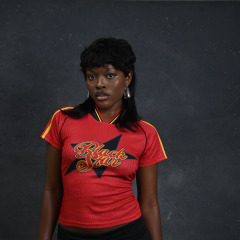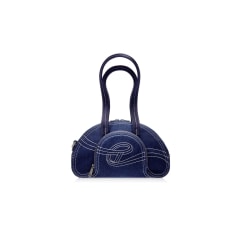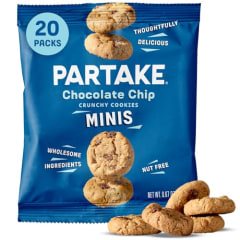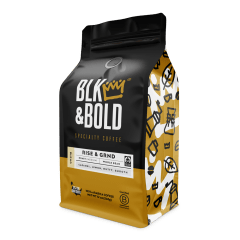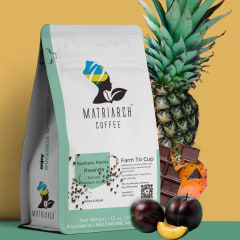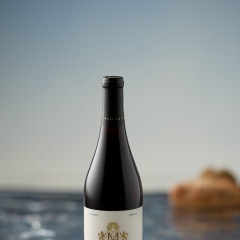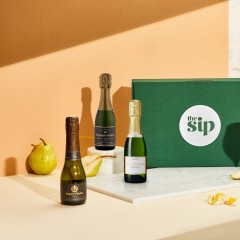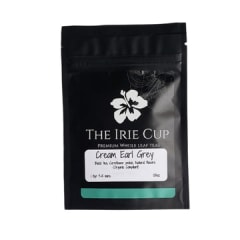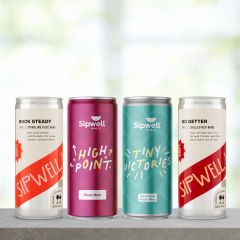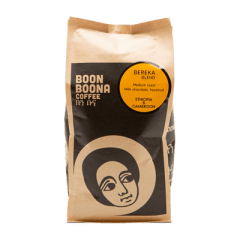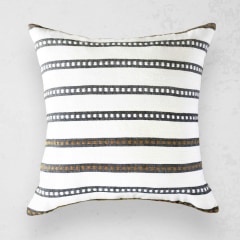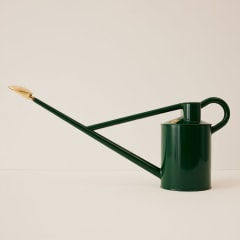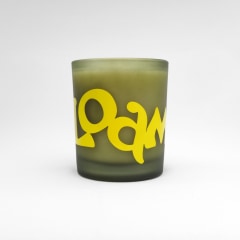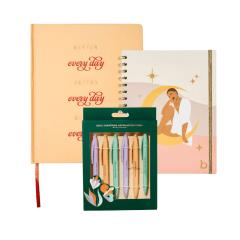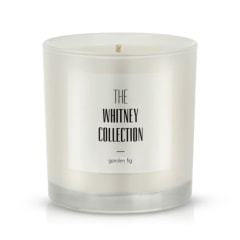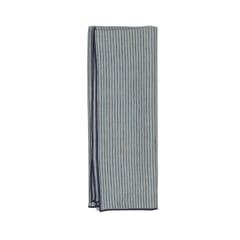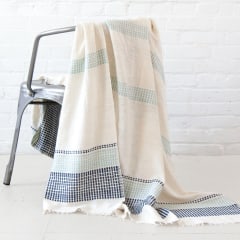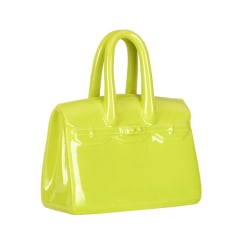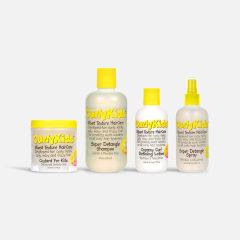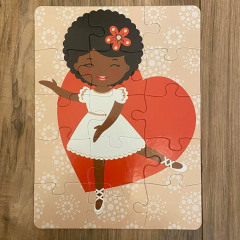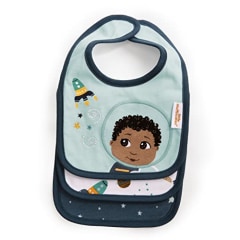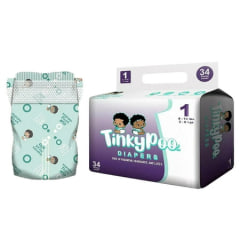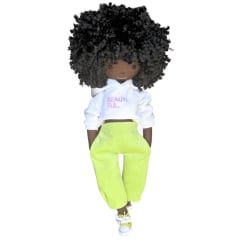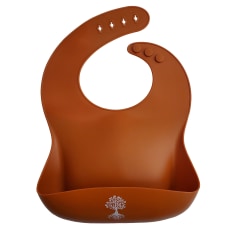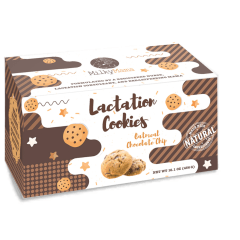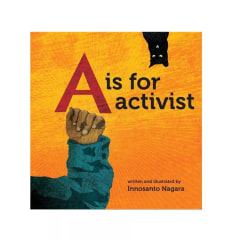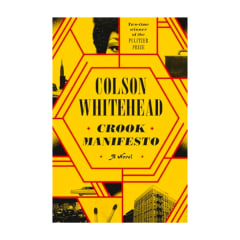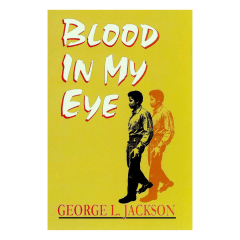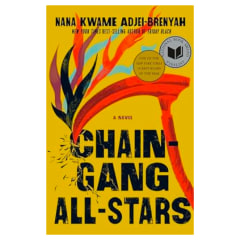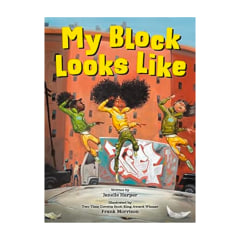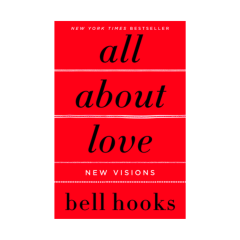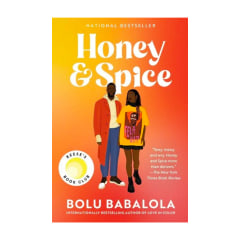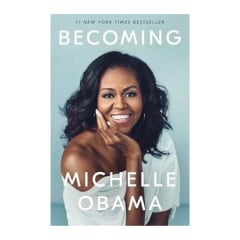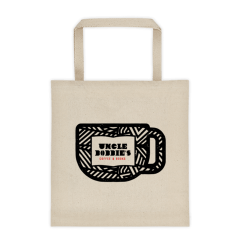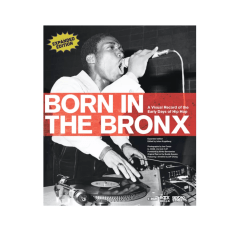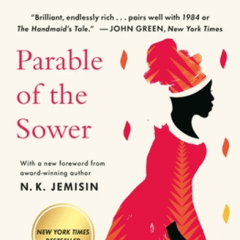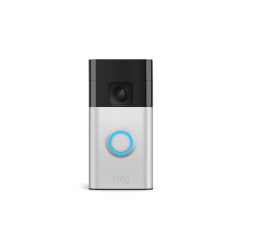There are roughly 4.6 million Black-owned businesses in the U.S. today, according to data from The Brookings Institution, many of which are led by talented artists, chefs, hair stylists, parents and fashion designers. We’ve interviewed dozens of Black entrepreneurs to learn about the successes and challenges they face while running their companies, and most stress that they’ve had to overcome barriers like a lack of access to capital and higher rates of financial distress compared to white-owned businesses.
Still, they’ve established support networks that include loyal customers who shop from them year round, not just during Black History Month, which takes place every February. That’s in addition to efforts from nonprofits like The Fifteen Percent Pledge, which is working to get more Black-owned brands on the shelves of major retailers nationwide.
Our guide of Black-owned businesses spans across shopping categories like beauty, home and kitchen, fashion and more. We’ve also confirmed that each company is at least 51% Black-owned, the threshold required to be considered a Black-owned business, according to the Census Bureau.
Want more from NBC Select? Sign up for our newsletter, The Selection, and shop smarter.
Black-owned beauty and wellness brands
Absolutely Everything Curly
Owner Gaby L. Longsworth founded Absolutely Everything Curly with the desire to educate people about textured hair, hair products and ingredients. The company offers a handful of downloadable hair care guides via its website, including hair products for curly-haired kids and babies, hair oils and butters and frizz fighters.
Alodia Hair Care
Alodia’s hair care products are made with non-toxic, organic and natural ingredients, says founder Isfahan Chambers-Harris. “Alodia was [created] out of my personal experiences with unnatural, toxic hair care products,” says Chambers-Harris, who saw “first-hand the misinformation that exists around textured hair.” The brand offers an online quiz to determine a personalized hair care routine based on your scalp health and hair goals. Products include shampoos, hair oils, styling creams and hair masks.
Camille Rose
Janell Stephens founded Camille Rose as a means of curing the eczema of her five young children, which developed as a result of severe dryness of their hair. The brand offers hair, skin and body care products, all of which are made using natural and food-grade ingredients, according to the brand.
Cecred
Beyonce was inspired to start Cecred by her mother, Tina Knowles, who was a hairstylist and designer for the girl group Destiny’s Child at their start. The brand focuses on scientifically-backed hair care that’s designed to help recover keratin, which results in stronger, longer and hydrated strands, especially for natural hair. The products include shampoos, conditioners, deep treatments and edge restoratives, with lines dedicated specifically to hydration and protective style aftercare.
Eadem
Eadem, founded by Alice Lin Glover and Marie Kouadio, was created from the belief that skin care should both work well and feel authentic. (This is also reflected in the brand’s name, which means “the same” in Latin.) Although the brand focuses primarily on skin care with hyperpigmentation treatments and exfoliants, Eadem also dabbles in the beauty space with its line of healing, moisturizing lip balms. In conjunction with an in-house team of dermatologists and chemists, Eadem focuses on clinical, melanin-compatible skin care that’s made for everyone, regardless of complexion, to feel comfortable and confident in their skin, according to the brand.
Eve Milan New York
Eden Gilliam, an esthetician and founder of Eve Milan New York, was inspired to start her skin care company because she wanted to leave behind a legacy for her daughter. Since then, she tells us the resources, information and emotional support available to Black business owners have greatly increased, and she’s had the opportunity to learn and grow from entrepreneurs who came before her. Eve Milan New York offers a range of skin care products, including cleansers, toners and serums.
Flora & Noor
Jordan Karim, founder and CEO of Flora & Noor, got the idea for her company while working as a pharmaceutical skin care consultant. None of the formulas she saw on the market fit what she was looking for — halal-certified ingredients safe for melanin-rich skin — so she created her own. “Our world is so diverse, and I believe our skin care should reflect that,” she tells us. Flora & Noor has body butters and scrubs, face moisturizers, cleansers, masks and more. The brand also offers a subscription service that delivers products straight to your door.
Here We Flo
Best friends Tara Chandra and Susan Allen began Here We Flow after realizing that they couldn’t find organic tampons that worked for them. Made to empower people to feel confident through their “messiest bodily moments,” the brand sells menstrual products like pads and tampons, along with products for bladder and sexual health.
LYS Beauty
Tisha Thompson, founder and CEO of LYS Beauty, is a former makeup artist and a 20-year veteran in the beauty space. She created LYS Beauty during the height of the Covid pandemic as a way to make clean beauty products affordable and accessible for all skin tones and types — and in 2021, it became the first-ever Black-owned clean makeup brand to hit Sephora shelves, according to the brand. LYS Beauty offers dozens of makeup products for the face, eyes and lips in various shades and formulas.
Melanin Haircare
Years of recommending DIY hair care recipes and styling tips led sisters Whitney White and Tafetta White to start Melanin Haircare. “Hair care as a consumer product is a need, not a ‘nice to have,’” says Whitney. Focused on scalp and natural hair health, the brand offers hair products like leave-in conditioners, shampoos, oils and more using nontoxic, natural ingredients. Since its launch in 2015, Melanin Haircare has expanded its range to include hair accessories like satin head wraps and lifestyle products like hoodies.
Pattern Beauty
Created by actress Tracee Ellis Ross, Pattern Beauty is a hair care brand that focuses on the health of all hair textures, from loose curls to tight coils. In addition to its styling creams, scalp detox oils, conditioners, award-winning blow dryer and more, the brand also offers educational quizzes and curl guides to find the treatment that’s best for your specific hair type.
RedDrop
RedDrop co-founders Dana Roberts and Monica Williams began the brand to help empower school-age tween girls as they move through puberty. They sell a variety of menstrual products, including pads, underwear and kits for period prep. Based out of Atlanta, RedDrop also aims to provide resources for parents supporting their children through puberty with their Period Prep classes.
Shani Darden Skin Care
Renowned esthetician Shani Darden started her line of skin care in order to create effective, clinical-strength products that she felt she couldn’t find on the market. The brand specializes in helping to treat fine lines, texture and tone with its line of acid peels, body treatments and skin care devices. Plus, all products are 100% cruelty-free, according to the brand.
Topicals
Topicals is a science-backed skin care brand designed for those with chronic skin concerns like eczema and hyperpigmentation. To create its collection of serums, moisturizers, body mists and more, Topicals works with an advisory board of dermatologists to include ingredients and herbals in its products that are backed by peer-reviewed clinical studies.
More beauty and wellness brands to shop
- Absolute Joi
- Absolutely Everything Curly
- Adwoa Beauty
- Alodia Haircare
- AMP Beauty LA
- Ayeya
- Beards & Beyond
- BeautyStat
- Beneath Your Mask
- Black Girl Sunscreen
- Bolden
- Bomba Curls
- Brown Butter Beauty
- Camille Rose
- Cay Skin
- Cecred
- Danessa Myricks Beauty
- Donna's Recipe
- DreamGirls
- Eadem
- Eve Milan New York
- Felicia Leatherwood
- Fenty Beauty
- Flawless by Gabrielle Union
- Fresh by Houston White
- Hanahana Beauty
- Harlem Perfume Co.
- Here We Flo
- Hue Noir
- Kimbritive
- Klur
- Lalais
- Lamik Beauty
- Luv Scrub
- Lys Beauty
- Maed Beauty
- Malkia Essentials
- Mary Louise Cosmetics
- Melanin Haircare
- Moodeaux
- Novara Beauty
- Octavia Morgan Los Angeles
- Oyin Handmade
- Pat McGrath Labs
- Pattern Beauty
- Pear Nova
- Range Beauty
- Rebundle
- Rose Ingleton MD Skincare
- Rosen
- Sabila Skincare
- Shani Darden Skin Care
- Sienna Naturals
- Skin by Brownlee & Co
- skinBUTTR
- The Ballet
- Taliah Waajid
- The Doux
- The Lip Bar
- The Y by Yusef
- Topicals
- Uncle Funky’s Daughter
- Undefined Beauty
- Uzari
- Watch & Sea Beauty
- yFOY
- YELLE Skincare
- Yfoy
Black-owned clothing and accessories brands
Barkal
Habab El Rufaie, founder and creative director of Barkal, created the brand as a gender-neutral footwear collection that is derived from traditional Sudanese men’s shoes, called Markoub. Barkal works with suppliers in Italy to get materials like nappa leather and suede to make what El Rufaie calls “culturally treasured” footwear.
Fitness Snob
Fitness Snob is a Black- and women-owned brand that offers crew socks to help maintain your fitness goals, whether you’re a beginner or a gym rat. The socks come in several bold designs and styles, including gripped socks for barre and Pilates classes and sheer crew socks to show over a pair of sporty sandals.
For Them
For Them was founded by Kylo Freeman out of a need for products and services that cater to the wellness of queer communities. The brand specializes in sustainable binders that are designed to help wearers feel comfortable and at home in their bodies, all while providing a firm yet healthy bind.
Meji Meji
Tolu Oye, a graduate of the Fashion Institute of Technology in New York City, founded Meji Meji during the 2020 pandemic. The brand is creatively influenced by Black culture via her Nigerian upbringing, and includes inspiration from West African textiles, music and pop culture. The line spans casualwear like jerseys, t-shirts and tanks, along with dressier options like dresses and mini skirts.
Powerhandz
Based out of Dallas, Texas, Powerhandz offers sports products and accessories. The company’s inventory caters to a wide range of sports and activities, including training equipment to improve soccer, basketball and football skills.
Saint Ola
Saint Ola was founded in 2017 by Nigerian-American fashion designer Jummy Thomas, who created the brand as a modern and inclusive approach to African aesthetics. The brand combines vintage and modern, African and western styles through dresses, skirts, jumpsuits, hair accessories and more.
Telfar
Teflar is a luxury brand piloted by Liberian-American fashion designer Telfar Clemens. Its popular Shopping Bag — often dubbed the “Bushwick Birkin” because of its popularity among Brooklyn creatives — is accessible in both design and price point, and it’s even a favorite among celebrities like Oprah and Beyoncé. But if a new bag drops, you’ll have to act fast: they typically sell out within minutes of going in stock. If you can’t get your hands on the classic Shopping Bag, the brand offers plenty of other fun styles, including the Circle Bag, Jelly Shopper and Puff Shopper.
Third Crown
Third Crown is a New York-based jewelry brand created by co-designers Kristin and Kofi Essel. Inspired by geometric shapes in everyday architecture, Third Crown’s collection of statement necklaces, rings, cuff bracelets and more is designed for all genders, according to the brand.
Tree Fairfax
Tricia “Tree” Fairfax launched the eponymous brand in 2018 as an outlet for her love of sewing and handcrafted accessories. Today, Tree Fairfax offers minimalist and long-lasting leather goods, including tote bags, wallets, belts and wine holder bags.
Vie Lorie
When Dr. Verniese Lorielle Moore was in medical school, she was diagnosed with stage three lymphoma and given six months to live. After a five-year battle with cancer, she was declared cured from lymphoma in 2015 — now, Moore officially realized her dreams of being a practicing physician and the founder and designer of Vie Lorie, a luxury handbag brand that launched in early February. The name, which derives from Moore’s first and middle name, has a special meaning: “Vie” means life in French and “Lorie” means laurel, which is the symbol for victory, Moore told us. Vie Lorie’s debut Tryumph Collection includes four handbags made by Italian artisans, and currently available exclusively online at the brand’s website.
Vontélle
Vontélle is a luxury eyewear brand created for diverse faces, which means it has larger lenses for high cheekbones, wider nose bridges and longer temples for comfort. The brand fulfills prescriptions and offers custom lens colors and tints, including blue light blocker and polarized lenses, in any pair of frames. The eyewear comes in dozens of designs and fun patterns to fit your personal style, and also also offers various colorful kids styles — in fact, Vontélle is the first Black- and women-owned eyewear brand to obtain a licensing agreement from Nickelodeon.
We Dream in Colour
We Dream in Colour founder Jade Gedeon and her sister Mika have been designing unique statement jewelry for over a decade. Based in Salem, Massachusetts, the brand’s all-women team uses repurposed material to create attractive and sustainable pieces, and the jewelry line’s intricate designs are inspired by Gedeon’s nomadic lifestyle across places like Trinidad and Tobago, Denmark and Australia.
More fashion brands to shop
- Agnes Baddoo
- Art Comes First
- Ashya
- Barkal
- DESERI
- Dulse Clothing
- Edas
- Endire Eyewear
- Epperson Studio
- Fitness Snob
- FlameKeepers Hat Club
- For Them
- Freedom Fleur
- Gymwrap
- Harbison Studio
- House of Takura
- Ice Studios
- Johnny Nelson
- Jumz
- Kai Collective
- Kayadua
- Keexs
- Kendall Miles
- Khiry
- Liberté
- Main Squeeze
- Mateo
- MejiMeji
- ModChic Leather
- NDG Paris
- Nia Thomas
- Perry Co.
- Powerhandz
- PUURE
- Roam Loud
- Saint Ola
- Shades of Shades
- Silver & Riley
- Telfar
- Ten Wilde Jewelry
- The Fitting Curve
- Third Crown
- Tia Adeola
- Tree Fairfax
- Twelve AM Co.
- Vavvoune
- Vie Lorie
- Vontélle
- Wales Bonner
- We Dream in Colour
- Yam
- Zashadu
- Zoezi Sport
Black-owned food and beverage brands
Blk & Bold
Pernell Cezar and Rod Johnson, founders of Blk & Bold and lifetime friends, say the name of their company represents who they are and the product they sell: black coffee with bold flavor. BLK & Bold sells light, medium and dark roast coffee, cold brew, Keurig K-cups and multiple teas. Every year, the brand pledges 5% of its gross revenue to nonprofit organizations in the U.S. that support and instill confidence in children.
Boon Boona Coffee
Founder Efrem Fesaha’s family is from Eritrea, a country next to Ethiopia, where coffee is an important part of the area’s culture. He started Boon Boona to introduce customers to the region’s beans, which he imports from East African producers and exporters. Boon Boona supports its growers by donating a portion of profits to them.
Luv’s Brownies
Luv’s Brownies sells heart-shaped sweet treats in flavors like original, espresso, peanut butter, rocky road and dulce de leche. Andrea Lacy, who founded the company in 1996, donates a portion of sales to a scholarship fund for high school seniors who’ve shown tenacity in overcoming challenges, like she did when she was diagnosed with dyslexia in college.
Matriarch Coffee
This coffee company sources its beans directly from Rwanda and roasts them in Baltimore, Maryland. Its founders aim to honor the matriarchs of their families by donating 10% of profits to women-focused programs in coffee farming communities. In 2022 and 2023, Matriarch Coffee also subsidized livestock to coffee farmers in Rwanda and contributed to health insurance coverage for over 200 coffee farming community members.
Partake Foods
Frustrated by a lack of allergy-friendly snacks for kids like her daughter, Denise Woodard started making and selling cookies that are gluten-free, vegan and free of the top nine allergens. She originally ran the business out of her car, but today, you can find Partake’s products on Amazon, as well as in major retailers nationwide like Target and Whole Foods. In addition to cookies, Partake offers graham crackers and breakfast mixes for pancakes and waffles. Through Partake, Woodard also runs the Black Futures in Food & Beverage Fellowship Program, which matches HBCU students with paid internships and jobs at CPG food & beverage companies.
Sipwell Wine Co.
Sipwell’s canned wine is made from organically or sustainably farmed grapes that are harvested in California’s Central Coast. Each can contains 1.5 glasses of wine (equivalent to about 8.5 ounces) and you can purchase sparkling or flat reds, whites and rosés.
The Irie Cup
“Irie” is a Jamaican saying that means “everything’s good,” which is how husband-and-wife team Joseph and LaShanda Lewis want customers to feel while sipping on their company’s tea. You can shop loose leaf tea in a variety of flavors, as well as matcha and accessories like mugs and infusers.
The McBride Sisters Wine Company
When Robin McBride and Andréa McBride John reunited after being raised across the world from each other, the sisters bonded over their love for winemaking. They founded their California-based company in 2005, and it’s now the largest Black-owned wine company in the U.S. They’ve since built out four brands: the McBride Sisters Collection, Black Girl Magic Wines, She Can Wines and the McBride Sisters Collection Reserve Wines.
The Sip
Erica Davis and Catherine Carter co-founded their wine subscription service in an effort to push back against industry norms telling women they’re supposed to like sweet and pink drinks. The Sip’s subscription service sends customers curated wine boxes either bi-monthly or annually, so they can try new varieties and discover their preferences from the comfort of their home. You can also shop ready-to-ship boxes.
Zach & Zoe Sweet Bee Farm
Zach & Zoe Sweet Bee Farm was born out of Kam and Summer Johnson’s quest to find a natural remedy for their son Zachary’s allergies. Incorporating raw honey into his diet seemed to do the trick, and the Johnson’s were inspired to start beekeeping and offer their own line of honey made without pesticides or additives.
More food and beverage brands to shop
- 444 Coffee Lab
- A Dozen Cousins
- Abisola Whiskey
- Adjourn Tea House
- Alpenglow Coffee Co.
- Ayo Foods
- Bad Beans Coffee
- Bell’s Reines
- Berry & Thyme
- Black Acres Coffee
- Black Coffee Fort Worth
- BlackNerd Coffee
- BLK & Bold
- Boon Boona Coffee
- Campfire Coffee
- Capital City
- CariBBrew
- Carla’s Fresh Market
- Charboy’s
- Chef Blackanese
- Chicago French Press
- Coco5
- Cocoa Asante
- Cupcake Chromatography
- Cute as a Cupcake
- Destiny African Market
- Dr. Flava Spices
- Egunsifoods
- FH Jerk
- Garden Based
- Ginja Snap
- GRIA Food Co
- Grown Folks
- Habasha Coffee
- Hapi African Gourmet
- Happily Nut-Free
- Harlem Chocolate Factory
- H3irlooom Food Group
- Hillside Harvest
- IrieVeda Spice Blends
- It’s Really Vegan
- Iylia
- Junita’s Jar
- Kahawa 1893
- Kyvan Foods
- Lillie’s of Charleston
- Love Cork Screw
- Luv’s Brownies
- Matriarch Coffee
- McBride Sisters Collection
- Midunu Chocolates
- Misha’s Kind Foods
- Monday Coffee Co.
- MUMGRY
- NoirePack
- Nüssli 118
- Oh-Mazing Food
- On The Go Joe Coffee
- One Love Toffee
- Partake Foods
- Patria Coffee Roasters
- Popus Gourmet Popcorn
- Rejuvenation
- Reveille Trading Company
- Sailor’s Brew Coffee
- Sarcastic Sweets
- Sibahle Teas
- Sip & Sonder
- Sip Herbals
- Sipwell Wine Co.
- Sorel Liqueur
- Southern Roots Vegan Bakery
- Style Pop Cafe
- Sweet Carolina Pies
- Sweet Kiwi
- The Black Leaf Tea & Culture Shop
- The Irie Cup
- The Sip
- The Wine Concierge
- Theopolis Vineyards
- Three Keys Coffee
- Uncle Nearest Whiskey
- West End Gin
- Yvaya Farm
- Zach & Zoe Sweet Bee Farm
Black-owned home and kitchen brands
54kibo
Nana Quagraine founded 54kibo in 2018 as a hub for African artisans to sell their handcrafted home decor. It showcases design techniques specific to different regions, like basket weaving, beadwork, goldsmithing and embroidery, and the “54” in the retailer’s name refers to the number of countries that make up the continent of Africa.
Be Rooted
Jasmin Foster founded Be Rooted “to create a safe space for women of color to feel seen and heard in their everyday life,” she told us. The brand sells journals and planners decorated with art depicting women of color, as well as desk accessories and home goods like puzzles. Be Rooted was recognized in the Time’s 100 Most Influential Companies, and was the first Black-owned stationery brand to line Target store shelves in 2021.
Bolé Road
After 11 years at a major New York City architecture firm, Brooklyn-based designer Hana Getachew started Bolé Road Textiles as a way to merge her passion for interior design and her love of Ethiopian handwoven fabrics, which she grew up with in her own home. The brand has a range of home decor and essentials, including pillows, rugs, curtains and bath mats, in neutral tones and pops of vibrant colors.
Clare
Interior designer Nicole Gibbons founded online paint store Clare to help make choosing a paint color simple and easy. The company partners with designers on curated collections, and before customers buy buckets of interior or exterior paint, they can get peel-and-stick swatches to place on their walls.
Curves by Sean Brown
Created by Canadian designer Sean Brown, Curves has a range of unique homewares and apparel that are often a twist on everyday items, including rugs, vases and tote bags. The brand’s product line is diverse, spanning items like “half full” cup sets, Birkin bag and shoebox-shaped piggy banks, incense and even apparel like bags, sweats and socks. The offerings are bold, colorful and modern — perfect for jazzing up any living space.
Goodee
While working in the fashion industry, Byron Peart told us he saw skilled, underrepresented makers around the world who needed a platform to share their goods. Switching gears from fashion to homeware, he co-founded Goodee with his brother Dexter Peart to help fill that need. The retailer sells furniture, decor, kitchen and dining products, as well as its own line of products.
Johanna Howard Home
Johanna Howard began her career working in fashion, creating women’s clothing inspired by the Scandinavian designs she grew up around in Sweden. She turned to home decor in 2013, and collaborates with artisans across the world to create products like table linens, pillows and throws.
Jungalow
Justina Blakeney started Jungalow as a blog to document her art and designs, but it’s now become a home decor brand that incorporates bold colors and patterns into every piece. Though Jungalow shut down its online store in May 2024, the brand is still available at major retailers like Target, Ruggable and Bloomingdales.
Loam Candles
Loam’s small-batch, vegan candles come in scents inspired by outdoor gardens, including Full Bloom, Citrus Season and Herb Bed. The company was founded by Jessica White, who donates 5% of profits to organizations that work to advance food security and access, teach people about plants and protect the environment.
The Whitney Collection
LA-native Whitney Brooks founded luxury candle company The Whitney Collection during the height of the COVID-19 pandemic. Since traveling was always a way for Brooks to achieve mental clarity and release, she needed an alternative while pandemic travel restrictions were in place. The collection, which has scents like garden fig and Cuban tobacco, honors the scents of different locations from Whitney’s travels, and can help transport people to different places around the globe.
More home and kitchen brands to shop
- Ifsthetic
- 54kibo
- Affirmation Effect
- AproChic
- Bayaal
- Be Rooted
- Bolé Road Textiles
- Clare
- Curves by Sean Brown
- Ekua Ceramics
- Frolic and Sage
- Goodee
- Harlem Candle Co.
- Johanna Howard Home
- Jungalow
- Loam Candles
- Marie Burgos
- Mo’s Crib
- Photodom
- Pretty Honest Candles
- Rayo & Honey
- Rochelle Porter
- Satya + Sage
- Sir Darius Brown
- The Whitney Collection
- xN Studio
Black-owned baby and kids brands
CurlyKids Hair Care
While there were plenty of products on the market tailored to address adult’s curly hair concerns, there weren’t many specifically formulated for kids. Sandy Williams changed that by co-founding CurlyKids. The company offers shampoos, conditioners and styling products for young curly, coily, kinky, frizzy and wavy hair textures.
Fourth Phase
To ensure new mothers have the products they need to heal after birth, Nana Eyeson-Akiwowo and Marcia A. Cole launched Fourth Phase, which sells after-birth care boxes filled with items that aid in physical and emotional recovery. The brand’s products are organic, non-toxic and sustainably sourced.
HarperIman
HarperIman is run by a mother and daughter team, Cynthia Watkins and Kathryn Burnett. Their company makes dolls with different skin tones and hair textures, providing children of color with toys that represent them.
Little Muffincakes
After noticing a lack of relatable imagery on products made for children of color, Debra Raney, a mother and grandmother, founded Little Muffincakes to ensure kids can see faces that look like them on apparel, accessories and room decor. Most products are designed for newborns to young elementary schoolers.
Loving Me Books
Loving Me Books is a database filled with children’s books that represent diverse characters and stories. Angela Nesbitt started it after noticing a lack of books about Black characters in classrooms and libraries while working as a behavioral therapist.
Milky Mama
Founder Krystal Nicole Duhaney is a registered nurse and lactation consultant who struggled with her milk supply after having her second child. She developed a lactation cookie recipe as a quick fix and started sharing it with other mothers in the same boat. Since then, Duhaney has expanded Milky Mama’s products to include lactation brownies, drink mixes, smoothies and more.
Puzzle Huddle
While shopping for toys for his three young children, Matthew Goins felt frustrated by how few puzzles featured images that looked like him and his family. He started making his own puzzles to fill the void, and the company has now grown to also sell wall decor, T-shirts, pillows and blankets.
The Rooted Baby Co.
The Rooted Baby Co. began as a way for founder Alfreda Abena to share her Ghanaian culture with her son, but now, the company allows her to teach other families about it, too. She sells baby products like swaddles, sheets, bows and teething toys, which are made in part from authentic African print fabric.
TinkyPoo
Nadiyah Spencer founded TinkyPoo in 2020 with the goal of creating a diaper company that represents babies of color by showcasing images of them on the brand’s products. “As a Black woman creating a diaper brand that celebrates our babies, I am living a dream that has now materialized,” says Spencer. “It shows my son and anyone watching that anything we put our minds to, we can achieve.” The diapers come in unisex sizes and are made from plant-based materials.
More baby and kids brands to shop
Black-owned bookstores and educational brands
44th & 3rd Bookseller
Founded by Warren, Cheryl and Allyce Lee in 2017, 44th & 3rd Bookseller is a family-owned bookstore based out of Atlanta. The store’s mission is to be a source of culturally-rich, unbiased literature for the Black community, selling books, audiobooks and a number of 44th & 3rd exclusive releases.
Black Classic Press
Specializing in republishing the out of print work of Black authors, Black Classic Press was founded in 1978, and aims to preserve the memory of important books in Black culture. They offer books that share perspectives on the Black diasporic experience through subjects like poetry, history and politics.
Black Garnet Books
Black Garnet Books was created during the summer of 2020 in Saint Paul, Minnesota and exists with a mission of “addressing racial inequality within the publishing and literary industries,” according to the brand. The shop’s selection is curated to focus on works by authors and illustrators of color, including bell hooks, Toshikazu Kawaguchi and Angela Davis.
Brave + Kind Bookshop
Located in Decatur, Georgia, Brave + Kind Bookshop caters to children and young adults with their selection of diverse and inclusive picture books, novels and more. The store also offers a reading club, and a variety of ‘Best Book’ bundles to make gifting easier.
Loyalty Bookstores
Hannah Oliver Depp founded Loyalty Bookstores in order to better serve Black and queer communities in the District of Columbia, Maryland and Virginia with a diverse offering of books and events. The store sells literary staples like books, stationery and more, and also partners with local vendors to create shopping experiences for the Washington, DC and Silver Springs, Maryland communities.
Mahogany Books
Founded in 2007 by husband and wife duo Derrick and Ramunda Young, Mahogany Books was created to meet the literary needs of readers looking for books written by or about the African diaspora. After being solely online for the first ten years of business, in 2017 the store opened its first physical location in Washington, DC, where the brand sells books spanning categories like fantasy, romance and nonfiction.
Semicolon Bookstore
Semicolon Bookstore was founded with the mission of bridging the literacy gap in the Chicago area by providing access to literature and working with the local community to build an interest in books. Every month, the store invites students to come in and take home books of their choice, free of charge.
The Key Bookstore
The Key Bookstore aims to build community digitally, by using technology to create an accessible, online bookstore experience. In addition to selling books and audiobooks, the store also hosts the Based Books podcast, which connects current topics to books and literature.
The Lit Bar
Bronx native and resident Noëlle Santos founded the Lit Bar in 2019, after the closure of the last bookstore in the Bronx left the community without a literary hub. The Lit Bar aims to be a sustainable, accessible bookstore that serves the needs of its community through events like social gatherings at the in-house wine bar and curated, local community programming.
Uncle Bobbie’s Coffee and Books
Founded by journalist Marc Lamont Hill in 2017, Uncle Bobbie’s is a coffee shop and bookstore serving the Germantown, Philadelphia area by providing access to books and community space. Along with books, the store also serves coffee, café foods, apparel, games and more, and also functions as a community space for author talks and weekly children’s storytimes.
More bookstores and educational brands to shop
- 44th & 3rd Bookseller
- Best Richardson African Diaspora Literature & Culture Museum and Books
- Black Classic Press
- Black Garnet Books
- Brain Lair Books
- Brave + Kind Bookshop
- Cafe con Libros
- Gladys Books & Wine
- Good Books
- Loving Me Books
- Loyalty Bookstores
- Mahogany Books
- Semicolon Bookstore
- The Key Bookstore
- The Lit Bar
- Uncle Bobbie’s Coffee and Books
Why trust NBC Select?
Mili Godio, Zoe Malin and Ashley Morris are, respectively, the updates editor, reporter and associate SEO reporter at NBC Select. For this article, they connected with hundreds of Black-owned businesses to confirm that they’re at least 51% Black-owned. (To be considered a Black-owned business, a company must be at least 51% Black-owned, according to the Census Bureau.) Godio, Malin and Morris also rounded up notable products from Black-owned businesses across shopping categories.
Catch up on NBC Select’s in-depth coverage of tech and tools, wellness and more, and follow us on Facebook, Instagram, Twitter and TikTok to stay up to date.



